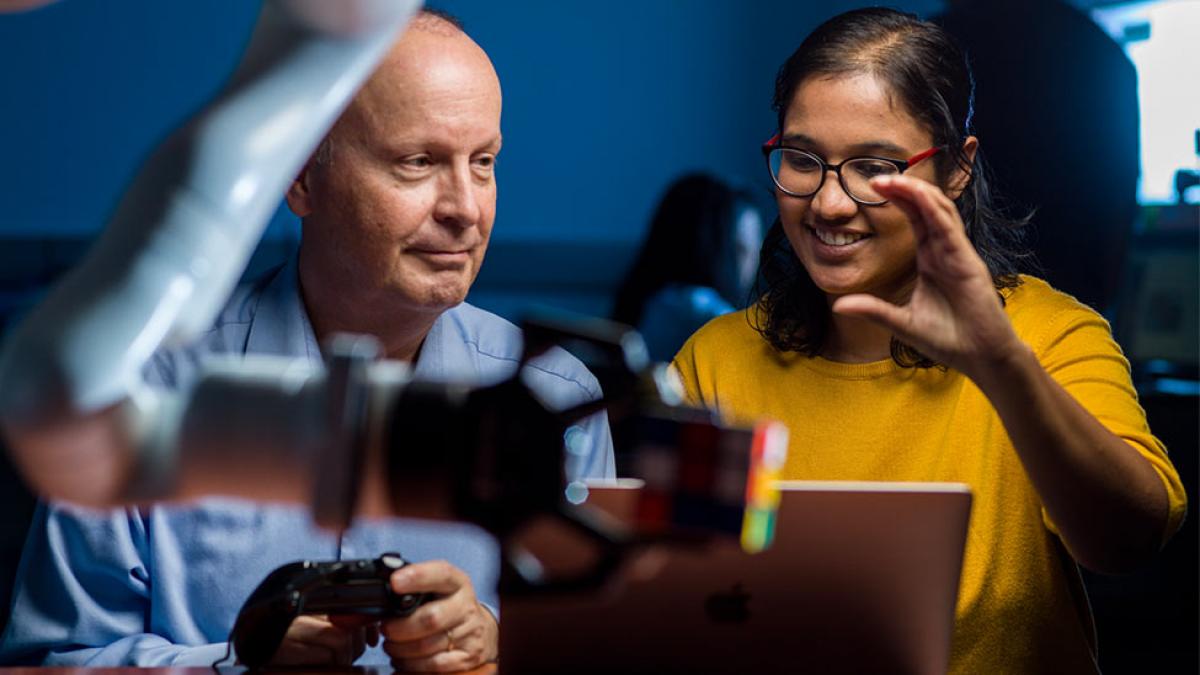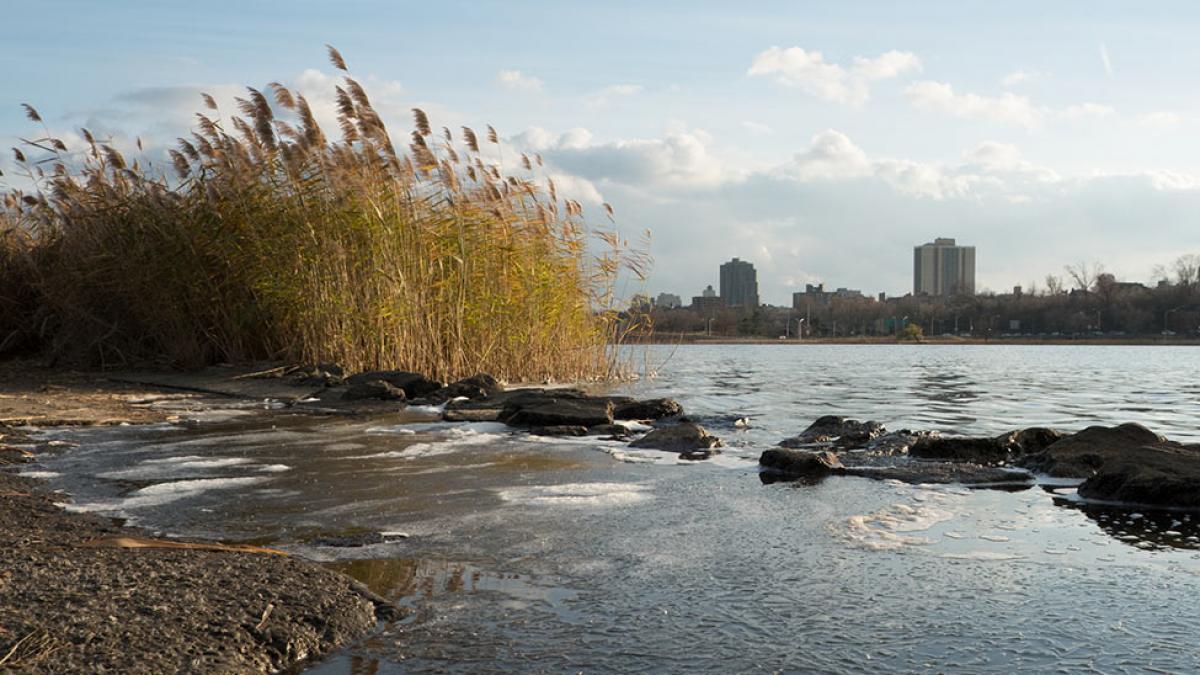It’s no secret that wellness—physical, mental, spiritual—is a key component to success. At Pace, we’re taking a holistic approach to supporting wellness for all members of our community through the creation of a new role, the Chief Wellness Officer.
Diving Into the Data

It’s no secret that data is king in today’s digitized world. Being able to understand and synthesize data—an increasingly tall order amidst the deluge of information now at our fingertips—is arguably the key to innovation in the 21st century. And it’s something that Dyson Professors Matthew Aiello-Lammens, PhD, and Erika Crispo, PhD, are committed to fostering at Pace to ensure our students are at the forefront of what’s next in the sciences.
“Today we’re able to collect more data more rapidly, collect it on computers, and analyze it on supercomputers,” said Crispo. “It’s becoming more challenging to handle data and analyze it—and it’s becoming increasingly important to give students the skills to be able to do so.”
Aiello-Lammens and Crispo are part of a team that was recently awarded a $499,354 five-year grant for the project RCN-UBE: Biological and Environmental Data Education Network: Preparing Instructors to Integrate Data Science into Undergraduate Biology and Environmental Science Curricula. Their goal? They hope to expand the influence and potential of harnessing data science in biology and environmental science—and ensure tomorrow’s scientists are sufficiently versed in this ever-important field.
“Technology has really enabled data science as a field in and of itself,” said Aiello-Lammens. “But one of the key things that we argue is that data science is often best done when it has a disciplinary connection. For us, it’s biology and environmental science.”
The grant will in part enable the continued growth of the Biological and Environmental Data Education (BEDE) Network, a consortium of professors and data scientists focused on building development opportunities to address unmet needs in data science education. Through the cultivation of skills, workshops, guides, and conferences, the group aims to further integrate increasingly essential data science skills into higher education science curricula—whether it’s an advanced biology course here at Pace, an introductory environmental science course at a local community college, or non-majors biology at a large state university.
“In some ways, along with other major awards at Pace, we’re positioning Pace as a leader in the intersection of technology and computation,” said Aiello-Lammens.
“We are really very focused on making these resources available across institution types—across major and non-major classes,” said Aiello-Lammens. “Any class can be an opportunity to incorporate data science. Any instructor can have an opportunity to incorporate data science.”
Additionally, as an extension of the award, Pace will be hosting a conference bringing together BEDE leaders in spring 2022, which will be focused on incorporating inclusive pedagogy in the data science field. Aiello-Lammens and Crispo believe that through events such as this upcoming BEDE Conference—and through building upon opportunities to empower instructors and student-scientists to analyze data to become better scientists—Pace will further establish itself as a hub for the type of interdisciplinary work that a strong data science tradition helps to cultivate.
“In some ways, along with other major awards at Pace, we’re positioning Pace as a leader in the intersection of technology and computation,” said Aiello-Lammens. “In our case, our goal is to make Pace a place where people know we're serious about advancing educational pedagogy in this field.”
With continued work and dedication, there’s no limit to what Pace’s future scientists can accomplish—and grants and conferences recognizing the University as an emerging leader in the data science conversation only furthers that potential.
As Crispo succinctly noted, “it puts Pace on the map.”
More from Pace Magazine
At the intersection of Pace’s strategic priorities and opportunities for outstanding academic growth comes the drive to move Pace forward. We're meeting the challenges facing higher education and putting our unique positioning and competitive advantages to work, strengthening our reputation as we move into the future.
Elisabeth Haub School of Law's Nicholas Robinson, JD, has earned countless accolades over his illustrious career; now, he's received a unique global honor.


